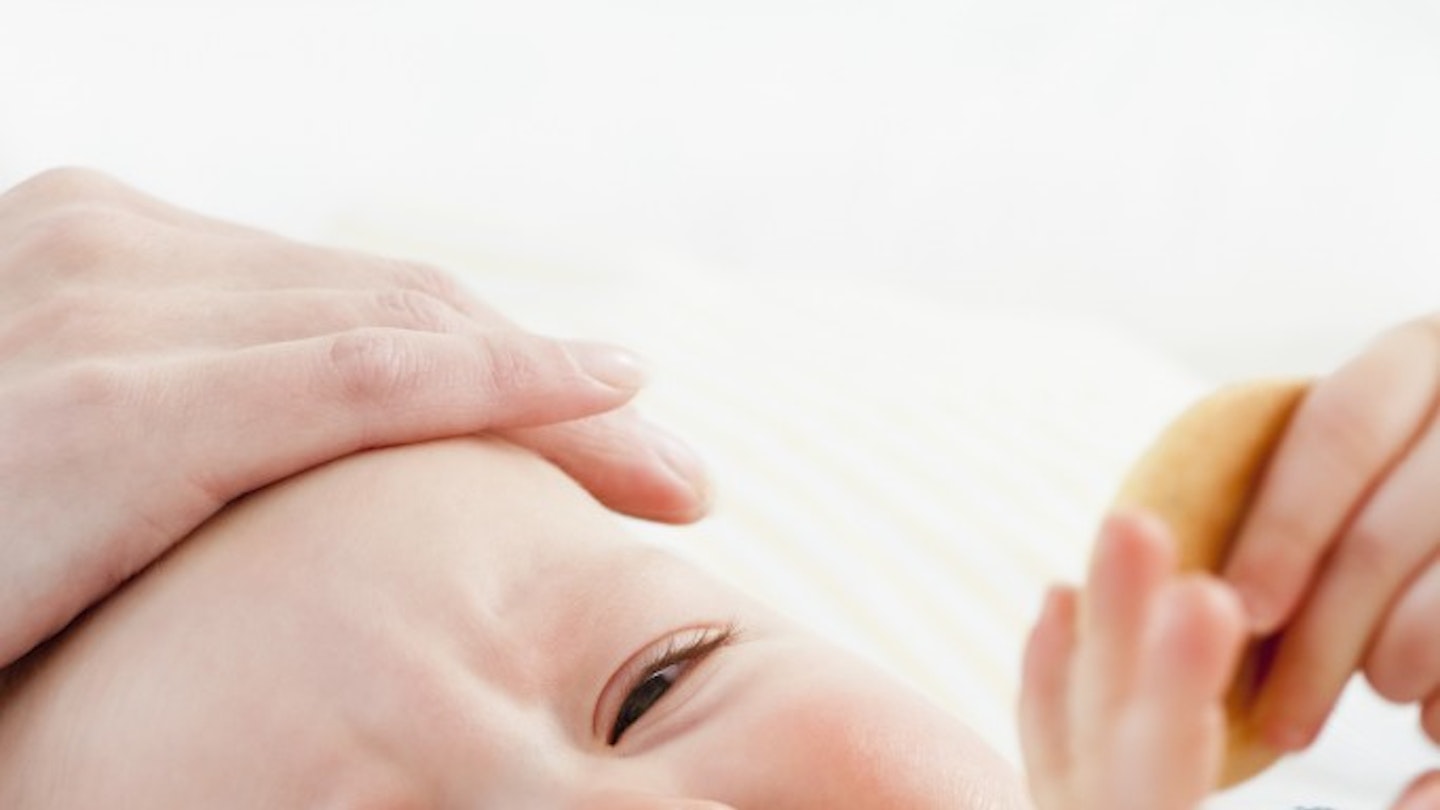We all know how grotty a cold leaves us feeling and, joy oh joy, your baby is really susceptible. With a cold usually comes a sniffly, runny nose and baby snoring, so it's important to know how to blow your baby's nose, as well as some tears and maybe even tantrums.
What are they?
One of the most common illnesses that your baby is likely to get in his first two years is a cold, and it’s normal to get between seven and 10 a year. ‘There are lots of different types of cold viruses, so it’s possible for your baby to recover from one cold only to catch another straight afterwards,’ says health visitor David Munday. While it's miserable at the time, keep in mind it’s all making his immune system stronger.
What are the symptoms?
If your baby has a cold, he may seem snuffly, have a runny nose or a cough and baby may be sticking their tongue out. The colour of the mucus that comes out of his nose can vary from clear to yellow or green. He may have difficulty feeding because he won’t be able to breathe through his blocked nose.
A bad cold could also see your baby come down with a high temperature. If you can't soothe your baby, and he cries for longer than 30 minutes, check if he has a fever.
A cold is one of the most common illnesses your baby will get in his first two years
What causes a cold?
Your baby catches a cold because his immune system is still developing so, when he comes into contact with a virus, it’s not yet strong enough to fight it off.
‘Colds are often passed on when someone coughs or sneezes and tiny water droplets that contain the cold virus are released into the air, which your baby then breathes in,’ says David. ‘It’s important to cover your mouth and nose when you sneeze or cough to prevent the virus spreading, and throw away used tissues and wash your hands after blowing your nose.’
The cold virus can also survive on objects such as toys for up to 24 hours, so give these a regular once over with an anti-bac wipe.
What can you do?
As it’s a virus, you can’t treat the cold with antibiotics, you can only treat the symptoms. Make sure your baby has plenty of fluids – either breast or formula milk, or water – to ensure he stays hydrated.
If your baby has a temperature, you can give him infant paracetamol or ibuprofen to ease pain and bring down the fever. Blocked noses can be treated with saline nasal drops, which will loosen the mucus, while vapour rubs can be rubbed onto your baby’s chest and back to open the airways.
You can use a nasal aspirator, which is a bit like a miniature vacuum pump, to suck the mucus out of his nostrils – it’s not a pleasant job but your baby will feel much better afterwards.
See your GP if…
Your baby struggles to breath or his breathing becomes noisy or wheezy. If his feeding and drinking decreases, take him to your doctor as he may become dehydrated. If symptoms are getting worse rather than better after five days, or your baby is under three months and has a persistently high temperature of over 38oC, see your GP.
Most colds cure themselves, but as bacteria thrive in mucus, some babies can develop secondary infections in the chest or ears. Your doctor may prescribe antibiotics if this is the case.
If your little one has a cold, try the Snufflebabe Nasal Aspirator:
Most read: The best baby humidifiers
